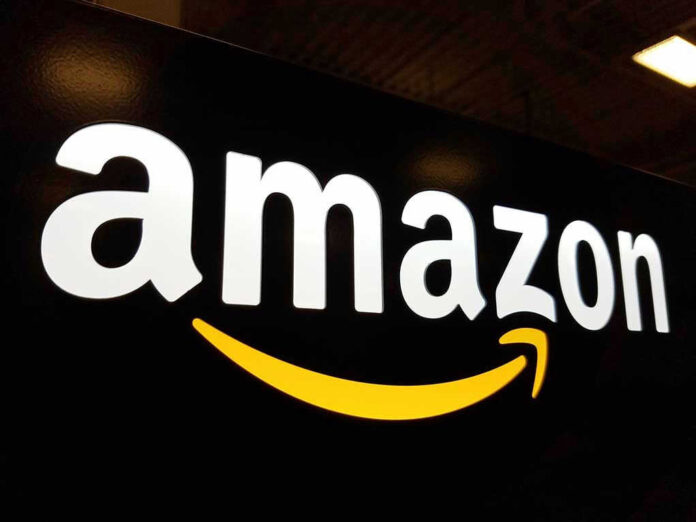
Amazon’s federal trial exposes how unchecked Big Tech power can undermine consumer choice and trap Americans in costly subscriptions—raising urgent questions about government overreach and corporate accountability.
Story Snapshot
- A Seattle jury is set to determine if Amazon tricked millions of Americans into unwanted Prime memberships and made cancellation intentionally difficult.
- The FTC’s lawsuit targets Amazon and three executives, alleging violations of federal consumer protection laws over more than a decade.
- If found liable, Amazon could face major fines, sweeping reforms, and individual executive penalties—potentially reshaping online business practices nationwide.
- The trial highlights growing frustration with powerful tech corporations and increased regulatory scrutiny, echoing long-standing conservative concerns about consumer rights and government overreach.
Amazon Faces Federal Jury Over Prime Subscription Tactics
A pivotal trial is underway in Seattle, where a federal jury will decide whether Amazon deliberately deceived millions of Americans into signing up for Prime and then made it extremely difficult to cancel. The Federal Trade Commission (FTC) alleges that Amazon’s practices violated the Restore Online Shoppers’ Confidence Act (ROSCA) and other consumer protection laws. This case stands out as one of the most significant legal battles against a tech giant in recent memory, as it not only targets Amazon as a corporation but also holds individual executives personally accountable.
Consumer complaints and internal Amazon documents have brought to light a pattern of confusing sign-up flows and a multi-step cancellation process reportedly referred to as “Iliad”—a nod to its complexity. The FTC’s years-long investigation culminated in a 2023 lawsuit, reflecting mounting frustration among everyday Americans who feel manipulated by corporate tactics designed to maximize profits at the expense of transparency and fair dealing. Amazon, defending itself, insists its terms are clear and that multiple cancellation options exist, but the trial’s outcome could have far-reaching implications for how all companies manage digital subscriptions.
Regulatory Scrutiny and the Balance of Power
The context for this trial is a rapidly changing landscape of regulatory scrutiny, especially as many Americans push back against Big Tech’s unchecked influence and government overreach. Under the previous administration, regulatory agencies such as the FTC aggressively pursued antitrust and consumer protection cases, often claiming to champion “the little guy” while expanding federal authority. Now, with the Trump administration’s focus shifted toward restoring individual liberties and limiting government interference, the Amazon trial poses a test of how far federal agencies should go in policing the business practices of America’s largest corporations. The presiding judge has already ruled that ROSCA applies to Prime and has limited some of Amazon’s legal defenses, setting a strong tone for the proceedings.
Amazon’s economic might and technological reach have given it leverage over consumers and even regulators, but the FTC wields significant legal authority. This trial could shift how corporations design subscription services and disclose terms. If the FTC prevails, it would set a precedent requiring easier cancellation and clearer disclosures—not just for Amazon, but for the entire sector. Executives Neil Lindsay, Jamil Ghani, and Russell Grandinetti face personal legal and reputational risks, reflecting a broader push to hold individual leaders accountable for corporate practices.
Potential Impacts for Consumers, Tech, and Policy
Short-term consequences could include major fines for Amazon, sweeping changes to its Prime service, and reputational damage. Long-term, this trial may force tech companies across the board to redesign their subscription models for greater transparency, benefiting consumers who want more control and less manipulation. The case highlights the dangers of “dark patterns”—website tricks that nudge users toward decisions they wouldn’t otherwise make—and exposes how too much power in the hands of a few tech companies can erode consumer freedom, a core conservative value.
Politically, the trial’s origins under the prior administration underscore the tendency of big government to insert itself into private enterprise. Critics argue that, while protecting consumers is important, overzealous regulation can stifle innovation and increase costs for everyone. Still, the case resonates with Americans wary of being trapped by corporate fine print and government mandates. The outcome will help define the limits of both corporate and federal power in the digital marketplace, with implications for family budgets, small businesses, and the future of online commerce.
Expert Analysis and Broader Implications
Legal and tech industry experts see this as a landmark test of federal law in the digital age and a signal to other companies about the risks of manipulative design. Consumer advocates support the FTC’s aggressive approach, while business groups warn of unintended consequences from regulatory overreach. The trial’s high profile and the personal liability faced by Amazon executives amplify its significance. As the jury weighs evidence and arguments, Americans across the political spectrum will be watching to see whether justice means more freedom for consumers—or just more bureaucracy and red tape from Washington.
Sources:
Amazon Prime membership lawsuit: FTC fraud, antitrust















